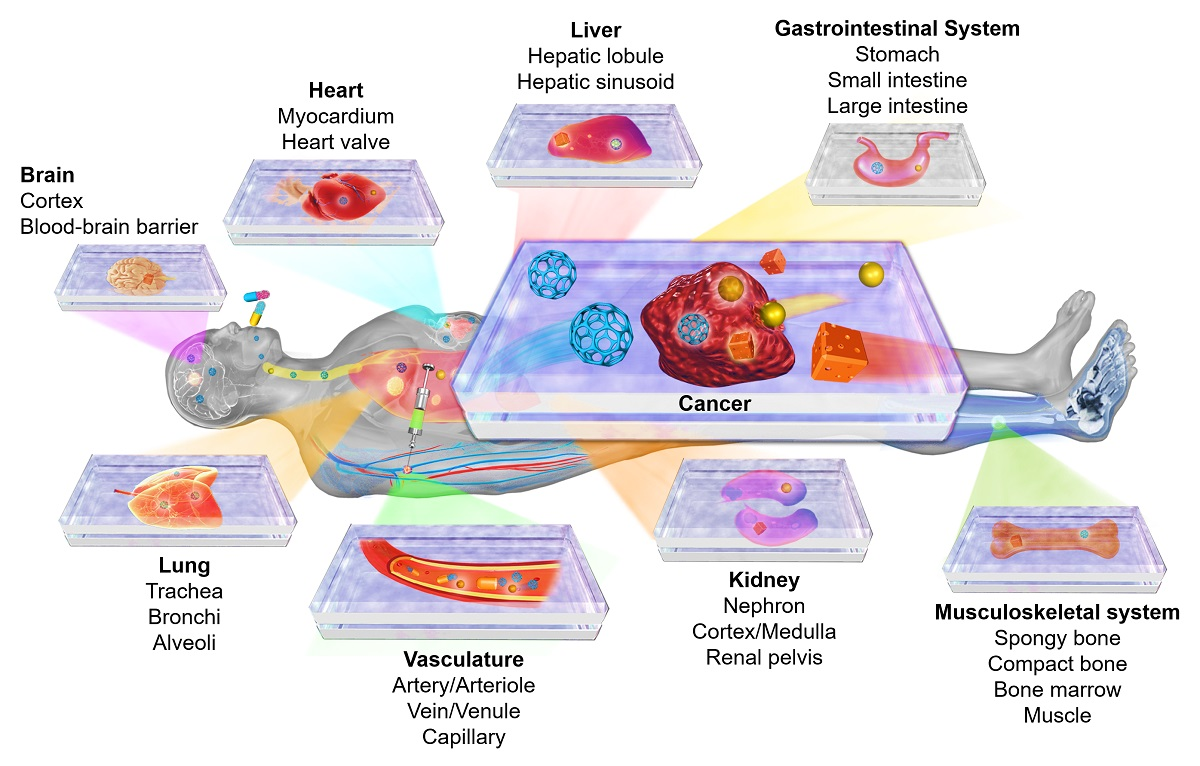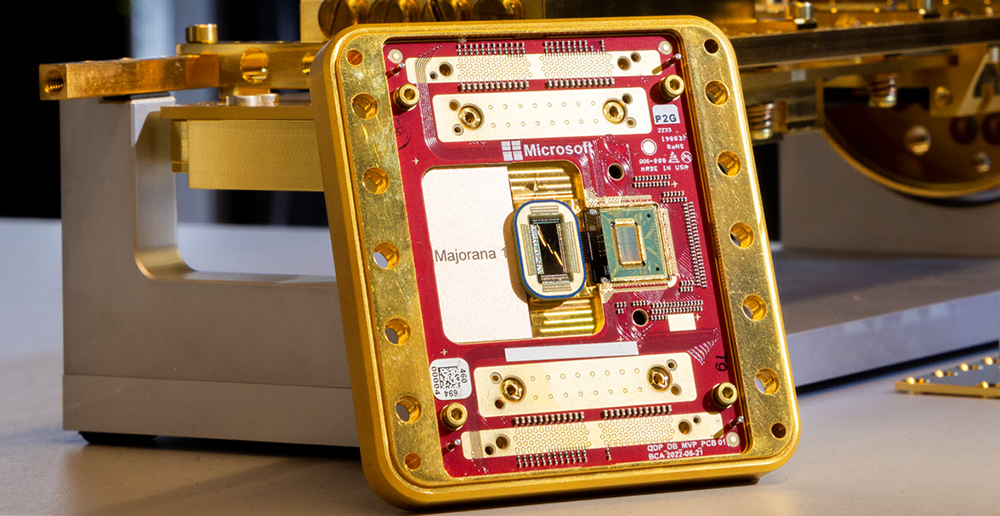Organ-on-a-chip technology represents a groundbreaking advancement in biomedical engineering, merging the realms of biology and micro-engineering to replicate human organ functions on a miniature scale. This innovative approach allows researchers to study disease processes and drug responses in a controlled environment, offering insights that traditional methods cannot. Funded by significant grants such as those from Harvard research initiatives, these organ-on-a-chip systems empower scientists to model complex biological interactions, paving the way for the future of personalized medicine. The urgency for such technologies has only grown with policies like those from the Trump administration, which aim to increase nuclear power research while highlighting the need for safe and effective treatment options. As we delve deeper into scientific innovation, organ-on-a-chip technology stands out as a vital tool for advancing healthcare and ensuring human safety in various contexts, from space exploration to nuclear scenarios.
Organ-on-a-chip systems, often referred to as microphysiological systems or tissue-on-a-chip, symbolize a transformative step in the field of biologically inspired engineering. These devices mimic the functions and structures of human organs, allowing for unparalleled experimentation in drug development and toxicology assessment. Backed by substantial research funding from reputable institutions, including Harvard, this technology showcases how modern engineering can address complex biological challenges. In light of recent governmental pushes for enhancing nuclear power capabilities, the relevance of these biocompatible models has become increasingly apparent, as they enable the assessment of radiation effects and therapeutic interventions. As we explore this field, it becomes evident that organ-on-a-chip innovations hold the promise of revolutionizing medicine and healthcare delivery.
The Impact of Organ-on-a-Chip Technology on Medical Research
Organ-on-a-chip technology is at the forefront of biomedical research, allowing scientists to create micro-engineered systems that mimic the functions of human organs. By utilizing living cells, these chips provide a unique platform to study diseases, drug responses, and the effects of environmental factors on human health in a controlled setting. The Wyss Institute’s work in this field exemplifies the significant strides being made, particularly in regards to understanding complex conditions like radiation damage from nuclear exposure. This innovative approach offers researchers an unprecedented ability to early detect the impact of therapies and substances on human tissue, which could lead to breakthroughs that traditional methods simply cannot achieve.
Moreover, the versatility of organ-on-a-chip devices extends their applications beyond medicine into space research and environmental studies, showcasing their importance in understanding human health under various conditions. For instance, by modeling the effects of space travel on human anatomy, these chips can help prepare astronauts for potential health risks associated with extended missions to Mars. The ability to simulate microgravity and radiation effects directly addresses significant challenges faced during such explorations. As funding and support in this area remain crucial, the implications of this technology could reshape not just medical research, but the very fabric of how we approach human health and safety in diverse environments.
Navigating Scientific Innovation Amidst Political Challenges
In recent years, the relationship between scientific research and government funding has become increasingly strained, especially evident during the Trump administration’s abrupt halt of financial support to institutions like Harvard. This stop-work order triggered a crisis for many researchers, including Don Ingber at the Wyss Institute, who expressed his concerns regarding project continuity and the welfare of his team. The political dynamics not only impact the allocation of funds but also the morale and innovative spirit within research communities. Ingber’s dedication to preserving talent and ensuring projects remain viable amidst uncertainty highlights the resilience of academia in the face of political turmoil.
Researchers are also facing a myriad of decisions that can affect their careers and the projects they hold dear. The fear of job security looms large, with talented scientists reevaluating their prospects amid political instability and administrative challenges. There are growing concerns that America, once a beacon of innovation attracting global talent, may now deter bright minds due to fears surrounding safety and job security. An open dialogue about the importance of science and the future of research funding is essential in combating this decline. Maintaining a constructive partnership between the government and academic institutions is crucial for revitalizing the scientific endeavor essential to America’s innovation engine.
Harvard’s Legal Battle for Research Funding
The recent lawsuit filed by Harvard against the Trump administration encapsulates a critical clash between institutional autonomy and governmental control over research funding. Harvard’s rejection of the administration’s demands was not just a stand against specific policies, but a defence of the fundamental principles of academic freedom and scientific inquiry. Without the ability to conduct research without external interference, the advancement of knowledge and innovation is at risk. The case underscores the importance of protecting scientific endeavors from political fluctuations, emphasizing that research is vital for societal progress and addressing contemporary challenges.
This legal confrontation is pivotal, as it could set a precedent for how research institutions operate in the future. The outcome will either fortify or undermine the autonomy of academic institutions across the nation. The real stakes are not only financial support but the broader implications for scientific research’s integrity and independence. As scientists like Ingber continue to fight for their projects, the academic community watches closely, aware that their ability to innovate and contribute to vital sectors like healthcare, energy, and environmental sustainability is on the line.
The Role of Federal Funding in Scientific Advancement
Federal funding has been an indispensable catalyst for scientific advancement in the United States. Initiatives, such as those supported by the U.S. Department of Health and Human Services, have historically provided crucial resources for innovative research leading to groundbreaking discoveries. However, disruptions such as the recent funding freeze not only impact ongoing projects but also stifle long-term scientific innovation. Researchers continually express that without adequate support, the innovative work that defines America’s scientific landscape is jeopardized.
Furthermore, the partnership between government and academia embodies a symbiotic relationship that fuels technological development, particularly in areas such as biologically inspired engineering pioneered by institutions like the Wyss Institute. The importance of sustaining this financial support cannot be understated; it plays a vital role in sustaining research environments that not only attract talent but foster an ecosystem of innovation critical for addressing societal challenges ranging from healthcare to climate change. As funding disputes continue, there is a pressing need for a renewed focus on the value of investment in scientific research.
The Future of Radiation Research in a Changing Political Landscape
Research involving radiation exposure and its effects on health remains an urgent priority, especially given current debates surrounding nuclear energy and policy. As highlighted by Ingber’s projects utilizing organ-on-a-chip technology, understanding radiation’s impact is crucial for not only space exploration but also for developing treatments for individuals undergoing radiation therapies for diseases like cancer. The need for reliable data to inform safety protocols and mitigate risks associated with increased nuclear power production parallels the demand for innovative solutions to emerging health challenges.
In the wake of political changes and potential shifts in funding, the commitment to advancing radiation research may face hurdles. However, the benefits of such research extend far beyond academic curiosity; they have real-world implications for public health and safety. Advocating for continued support and investment in these critical areas is essential for ensuring that vital research, which could prevent long-term health consequences from radiation exposure, is prioritized despite the challenging landscape presented by shifting governmental policies and funding allocations.
The Importance of Talent Retention in Scientific Fields
Talent retention is crucial to sustaining innovation within scientific fields, particularly in times of uncertainty sparked by political shifts. The fear witnessed among researchers at the Wyss Institute, especially amid the impending layoffs and budget cuts, reflects a broader concern within the academic community. When scientists feel insecure, they may leave to pursue opportunities elsewhere, diminishing the collective knowledge and progress hard-earned in their respective domains. The stories of scientists contemplating moves to institutions in Europe due to instability in U.S. funding highlight the urgent need for universities and research facilities to offer secure environments conducive to groundbreaking work.
On a systemic level, universities like Harvard have historically served as incubators for talent, attracting individuals from various backgrounds willing to tackle the world’s toughest scientific challenges. However, as concerns regarding safety and job security escalate, institutions must step up efforts to create supportive frameworks, ensuring that their talent not only thrives but remains in place to drive future innovations. Addressing these challenges proactively will be key in maintaining the robust pipeline of research that has consistently positioned the United States as a leader in global scientific advancements.
The Future of Space Research and Human Safety
Space research has gained unprecedented attention in recent years, particularly as missions to Mars and beyond approach fruition. Understanding the effects of space conditions on human health is critical for the success of these missions. Research that employs organ-on-a-chip technology, like the studies being conducted at the Wyss Institute, enables scientists to simulate the impacts of microgravity and cosmic radiation on biological systems using human cells. This capability allows for the evaluation of potential risks astronauts may face during extended periods in space, underscoring the necessity of robust research to safeguard human life in extraterrestrial environments.
As exploration initiatives gain momentum, the significance of this research cannot be overstated. The teams involved work diligently to uncover how factors such as radiation exposure may affect health over time. Findings will yield insights not only for future missions but also for therapies to address similar challenges on Earth, enhancing our understanding of radiation’s effects in various contexts. A commitment to funding space-related health research will ensure that the safety of astronauts is prioritized, enabling humankind to take bold new steps into the cosmos with confidence.
The Interplay Between Politics and Scientific Growth
The intersection of politics and scientific growth presents a complex narrative, especially in how research funding is allocated and managed. Political agendas can both spur significant advancements in research or lead to harmful constraints, as seen with the Trump administration’s funding stoppage. Researchers like Ingber at Harvard exemplify how political decisions ripple throughout the scientific community, impacting not just funding but also the morale and direction of vital research. Navigating these political waters is crucial for maintaining a thriving environment for scientific exploration and discovery.
As researchers confront the shifting political landscapes, there is a clear need for advocacy to emphasize the importance of sustained funding for scientific development. A focus on the role of innovation in improving societal well-being is essential for encouraging bipartisan support for research initiatives. Establishing clear communication between scientists and lawmakers can help bridge gaps in understanding, allowing for a more informed approach to policies that impact scientific research, ultimately reinforcing the principles that have long allowed America to flourish as a leader in technological and scientific progress.
Frequently Asked Questions
What is organ-on-a-chip technology and how is it advancing scientific innovation?
Organ-on-a-chip technology is a cutting-edge approach that employs biologically inspired engineering to create micro-engineered systems that replicate human organ functions. By simulating the physiological responses of tissues, this technology advances scientific innovation by enabling researchers to study drug effects, disease mechanisms, and radiation damage in a controlled environment. This leading-edge technology holds significant promise for personalized medicine and reducing the need for animal testing.
How does organ-on-a-chip technology support research in nuclear power?
Organ-on-a-chip technology supports research in nuclear power by allowing scientists to model radiation damage to human tissues, providing insights essential for safety assessments. As the Trump administration seeks to increase nuclear power production, this technology can help identify potential health impacts from radiation exposure, thereby contributing to safer operational protocols and therapeutic strategies for affected patients.
What role does Harvard research funding play in advancing organ-on-a-chip technology?
Harvard research funding plays a critical role in advancing organ-on-a-chip technology by supporting innovative projects at the Wyss Institute for Biologically Inspired Engineering. Funding enables researchers to develop and refine these technologies, leading to breakthroughs in understanding human health and disease while contributing to America’s scientific innovation landscape, which has been impacted by recent governmental changes.
Can organ-on-a-chip technology assist in space research, particularly for astronauts?
Yes, organ-on-a-chip technology assists in space research by providing tools to simulate the effects of microgravity and radiation exposure on astronauts. As part of the Artemis II mission, specialized chips utilize astronauts’ cells to evaluate biological responses during space travel, which is vital for ensuring astronaut health during extended missions to Mars and beyond.
How is organ-on-a-chip technology connected to the concept of biologically inspired engineering?
Organ-on-a-chip technology is a prime example of biologically inspired engineering, as it harnesses natural biological processes to design microenvironments that mimic the intricate functions of human organs. This interdisciplinary approach not only fosters innovation in biomedical research but also illustrates how engineering can draw lessons from biology to solve complex health-related challenges.
| Key Points | Details |
|---|---|
| Stop-work Order Issued | Harvard received a stop-work order affecting two organ-on-a-chip projects after rejecting demands from the Trump administration. |
| Funding Freeze | The U.S. government froze approximately $2.2 billion in research funding to Harvard. |
| Lawsuit Filed | Harvard filed a lawsuit against the government’s demands, claiming they were illegal and unconstitutional. |
| Implications for Research | Research using organ-on-a-chip technology addresses critical issues such as radiation damage and the effects of microgravity on astronauts. |
| Impact on Researchers | The uncertainty has led to difficult decisions for researchers, with concerns about job security and relocations. |
| Concerns About U.S. Science Landscape | The current climate is leading to a decline in international talent interest in U.S. science positions. |
Summary
Organ-on-a-chip technology is crucial for advancing scientific research and addressing critical challenges in healthcare and space exploration. With recent developments such as funding freezes and the issuance of stop-work orders, the future of this innovative technology may face uncertainties. Researchers like Don Ingber at Harvard’s Wyss Institute emphasize that this technology not only aids in modeling tissue damage but also plays a role in preparing for potential health impacts from nuclear power and space travel. As the landscape of academic research evolves, the implications of these administrative decisions could significantly affect America’s innovation engine.



